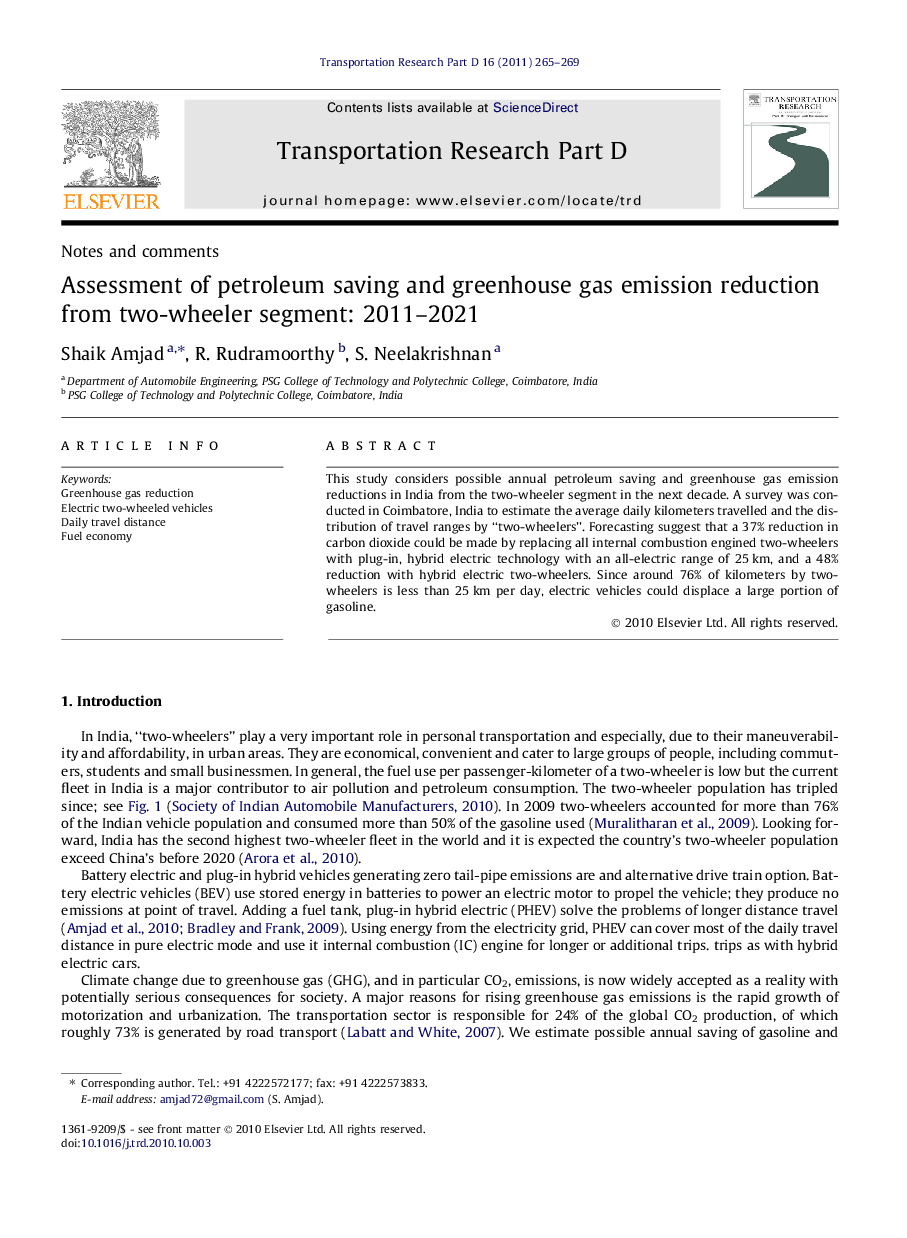| Article ID | Journal | Published Year | Pages | File Type |
|---|---|---|---|---|
| 1066247 | Transportation Research Part D: Transport and Environment | 2011 | 5 Pages |
This study considers possible annual petroleum saving and greenhouse gas emission reductions in India from the two-wheeler segment in the next decade. A survey was conducted in Coimbatore, India to estimate the average daily kilometers travelled and the distribution of travel ranges by “two-wheelers”. Forecasting suggest that a 37% reduction in carbon dioxide could be made by replacing all internal combustion engined two-wheelers with plug-in, hybrid electric technology with an all-electric range of 25 km, and a 48% reduction with hybrid electric two-wheelers. Since around 76% of kilometers by two-wheelers is less than 25 km per day, electric vehicles could displace a large portion of gasoline.
Research highlights► The study demonstrates the savings in fuel and in CO2 emissions that can accompany the adoption of all-electric and gasoline electric-hybrid two wheeled vehicles in India. ► The paper makes use of a case study of two-wheeler fleet in a large India city, Coimbatore, to estimate the fuel savings and environmental benefits of moving away from purely gasoline engine two wheelers. ► Around 76% of kilometers by two-wheelers is less than 25 km per day, hence, replacing with electric kilometers could displace a large portion of gasoline in India.
